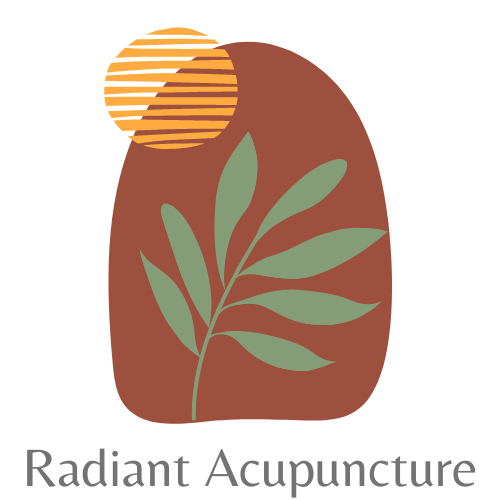Liver Qi Stagnation
Ever feel like you’re holding in frustration, getting irritated at the smallest things, or just feeling stuck in your emotions? Maybe your body is trying to tell you something too with more muscular tension, indigestion, or poor sleep. Trust me, I’ve been there! In Traditional Chinese Medicine (TCM), all of these could be signs of Liver Qi Stagnation, one of the most common imbalances I see in my practice. I’ll break down what this means, why it happens, and what you can do to start feeling better.
In TCM, the Liver has a big job! Like keeping your energy in your body flowing smoothly. When that flow gets stuck from things like stress, pent-up emotions, or sluggish detox pathways (i.e. your bowel movements, lymph and sweat) things start to back up, both physically and emotionally. Think of it like a literal traffic jam: if everything is moving as it should then we have no problem. But when things get clogged up…that’s when you start to see the tension, irritability, and all kinds of annoying symptoms show up.
The Liver is also tied to the Wood element, which means it REALLY likes growth, expansion, movement, and flexibility. So it absolutely hates when things aren’t going smoothly to plan, it’s not moving forward, or there’s a block in some way whether that be at work, a relationship, or another type of situation. When it’s balanced, you feel emotionally steady and in alignment with your path.
If you’re dealing with this, you’re definitely not alone. Some of the most common culprits include:
Stress & suppressed emotions: I see this a lot when people have been bottling up feelings (especially frustration, anger, or resentment). It’s basically like putting a lid on a steaming pot, it builds pressure until something has to give.
Diet: This can happen when were eating too much take out, any consumption of alcohol, too much greasy, spicy, or processed food. It just adds up and can slow down the Liver’s detox process. The build up happens a lot quicker if your bowel movements aren’t going great either.
Lack of movement: If you’re not moving, neither is your Qi! Sitting all day can make everything feel really stuck.
Toxins & environmental factors: drugs, pollutants, chemicals in food, and even poor-quality air or water can overload your detox system.
Here’s some other symptoms of how Liver Qi Stagnation might show up:
Bloating, digestive discomfort, diarrhea, constipation
Tension or tightness in the chest, rib cage area, or shoulders
PMS, breast tenderness, or irregular menstrual cycles
Tension headaches (especially at the sides or top of your head)
Feeling fatigued but oddly have way more energy AFTER exercising
Irritability, frustration, or sudden mood swings
Feeling stuck in life or indecisive
Anxiety or low-grade depression
Waking up in the middle of the night, especially between 1-3 AM
That weird “lump in the throat” sensation when stressed
Sound familiar? Ok, don’t worry, there’s a lot you can do to get things moving again. Liver Qi Stagnation responds really well to simple lifestyle shifts I promise. Here are some of my go-to recommendations for my patients:
Acupuncture & Herbal Medicine
Acupuncture is amazing at getting Qi moving again. My treatments are always customized to the patient but I often use points like Liver 3 or Liver 2 (depending on heat symptoms) which is basically like an emotional release valve to ease frustration and tension. There are also classic herbal formulas like Xiao Yao San (aka Free & Easy Wanderer) that can help smooth out mood swings and digestive issues.
Move Your Body!
When Liver Qi is stuck, you might feel like a slug that can’t get off the couch, but really, your energy just isn’t flowing properly. Try movement you enjoy that helps shake things loose:
✔ Lots of walking, flowy yoga, pilates, or even Tai Chi for a gentle flow
✔ Strength training, more challenging yoga, rebounding, or dancing to break up stagnation
✔ Something sweaty—too much stagnation can create heat, so breaking a sweat helps release it!
Eat for Your Liver
Your Liver loves bitter and sour flavors. Try:
✔ Leafy greens (dandelion, kale, arugula)
✔ Sour foods (lemons, apple cider vinegar)
✔ Warm, cooked meals to support digestion
And go easy on greasy, heavy, overly spicy foods, alcohol, and caffeine—these can make stagnation worse.
Manage Stress & Emotions
Since emotions are a huge trigger for Liver Qi Stagnation, finding ways to actually process them is key. Try:
✔ Journaling: Write it out, reflect/process where the tension is coming from, what changes or things do you need to take action on?
✔ Deep belly breathing (long exhales help move Qi)
✔ Acupressure: Press Liver 2 or 3 (between your first and second toe) for a few minutes to relieve tension
✔ Bodywork like massage, gua sha, or cupping to release physical stagnation
If this is all sounding way too relatable, acupuncture can help you get back to balance fast. Liver Qi Stagnation is one of the most common patterns I treat, and I love helping people feel less stuck, both physically and emotionally. Your body wants to flow! it’s just about giving it the right support.
Once we get your Liver Qi moving smoothly, we can start addressing the deeper, more intricate patterns at play. TCM is a beautifully complex system, and imbalances rarely exist in isolation—there’s often an interplay of deficiency, excess, heat, cold, and more that influences how you feel. When we clear stagnation, we can uncover and work on those more nuanced layers of your health. Book a session and let’s get started!
